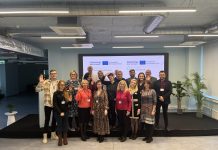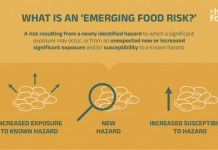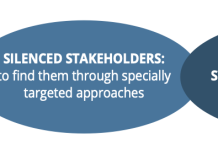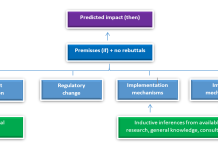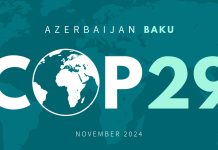Open Access Government produces compelling and informative news, publications, eBooks, and academic research articles for the public and private sector looking at health, diseases & conditions, workplace, research & innovation, digital transformation, government policy, environment, agriculture, energy, transport and more.
Home 2026
Archives
Local governments in Europe play a crucial role in achieving climate neutrality
Alina Safronova at the Institute of Energy Systems and Environment, Riga Technical University, examines how local governments in Europe are one of the most important driving forces on the path to climate neutrality.
Improving food safety risk analysis for safer European food systems
The HOLiFOOD consortium is reimagining food safety risk assessment for the benefit of all stakeholders in the food chain.
Decoding Ukraine’s naval victories: A logic model approach
This article introduces the Black Sea Battle Lab (BBL) logic model, a framework designed to trace how Ukraine’s operational responses to Russia’s invasion link strategic pressures to measurable outcomes and broader doctrinal insights.
Unlocking global climate finance: Governments must champion carbon markets
While governments worldwide are stepping up to support voluntary carbon markets, now is the time to scale climate finance with integrity and impact, Chris Duck from Climate Impact Partners argues.
Working toward fairer global scholarly communication
Angel Y. Ford at the University at Albany charts working toward a more just global landscape of research output valuation and dissemination.
Frontline innovations: Introducing the Black Sea battle lab
The Black Sea Battle Lab is a new initiative launched by the Ukrainian and Norwegian armed forces amid the ongoing conflict in Ukraine. Set to begin in July 2025, it aims to create a hub for innovation, leadership development, and policy engagement in maritime operations. Head of the Department of Tactics, Ukrainian Naval Forces Institute, Pavlo Rud, explains.
Depoliticisation as a silencer in lawmaking
In her thought-provoking commentary, Kati Rantala from the Faculty of Social Sciences delves into the concept of depoliticisation, exploring how it acts as a silencer in lawmaking. She examines the rhetoric surrounding inclusivity and participation in the normative basis for regulatory policy.
Digital food information governance for an evolving digital world
James Peach, LLM, FMCG Regulatory Specialist at NIQ Brandbank, discusses digital food information governance in today’s evolving digital landscape.
Inclusive public space project: Law, disability and accessibility
Anna Lawson, Maria Orchard, Dick Houtzager, Sanjay Jain, Agnes Meroka-Mutua, Lawrence Mute, Barry Whaley, and Sofia Raseta discuss the Inclusive Public Space (European Research Council) Project and examine the role of law and policy in improving the accessibility and inclusiveness of city streets.
The tenth anniversary of the Paris Agreement: COP30, failure, and renewal
The Conference of the Parties in Belém, Brazil, this November (COP30) will celebrate the tenth anniversary of the Paris Agreement (COP21 in 2015), but where, Richard Beardsworth asks, do things stand ten years on?
Silent stakeholders in regulatory policy
In this first of a four-part series, Kati Rantala from the Faculty of Social Sciences at the University of Helsinki examines silent stakeholders in regulatory policy – identifying who they are, explaining their significance, and exploring ways to enhance their involvement.
Strengthening urban governance for inclusive and effective nature-based solutions
McKenna Davis, Senior Fellow and Coordinator of Nature-based Solutions at the Ecologic Institute, discusses the importance of strengthening urban governance to enhance the uptake and inclusiveness of nature-based solutions.
Regulatory impact assessment and policymaking research
Kati Rantala, Research Director at the Faculty of Social Sciences, analyses Regulatory Impact Assessment as a policymaking tool.
Forging unity: Interagency collaboration in hybrid warfare
Jostein Mattingsdal explores leadership’s critical role in maximizing interagency collaboration’s effectiveness in hybrid warfare scenarios.
‘Remember, remember the month of November’: Ahead of COP29
Professor of International Relations at the University of Leeds, Richard Beardsworth, looks with concern to this November’s COP29 and the US elections. The issue is climate leadership.
Right-wing ethno-nationalists and jihadi Salafists
Morten Bøås, from the Norwegian Institute of International Affairs (NUPI), examines the similarities between right-wing ethno-nationalists and jihadi Salafists.
EUCTER: From a Jean Monnet Network to the European Counter-Terrorism and Security Institute
Christian Kaunert, Professor of Policing and Security at the University of South Wales, describes the scope of EUCTER, from a Jean Monnet Network to the European Counter-Terrorism and Security Institute.
An organizing protocol for society’s approach at responding to climate change
Huffington Foundation Professor of Economics and Environmental Studies, Emeritus Gary Yohe argues that adopting an iterative risk management approach is the most effective way when responding to climate change uncertainties.
The critical role of governments in benefit sharing
Dominic Muyldermans and Frank Michiels outline the key role governments can play in making a new multilateral mechanism for benefit sharing a success.
The impact of Brexit on the UK economy
Sarah Hall, Professor of Economic Geography at the University of Nottingham, charts the impact of Brexit on the UK economy and identifies opportunities for future developments.

